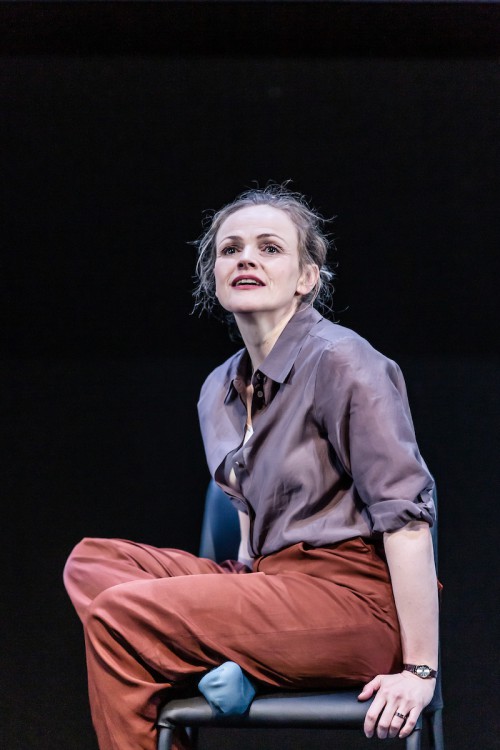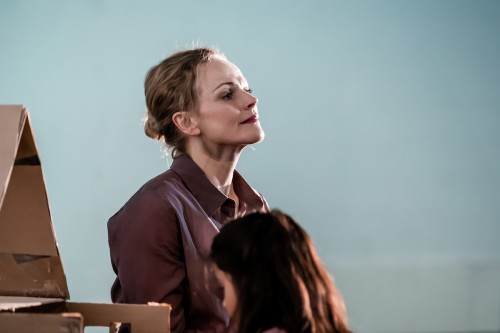Roslyn Packer Theatre, August 31
7/10
Unlike with a Sydney apartment building, you can see that this play has been well-built. You can sense it has been measured and fitted and slotted together until the joins are almost invisible. Almost. Julia Leigh’s play about the trade in hope that, for a woman of a certain age, is IVF, is a skilled piece of writing. It builds its tension in tiny increments, which finds a metaphor in the walls of Marg Horwell’s set very slowly rising to the flies, and this, in turn, is a metaphor for the bar being raised on the Woman’s chances of pregnancy; the pressure rising as her biological clock counts down to zero.

The one-woman play (with brief appearances by two imagined, non-speaking children), directed by Anne-Louise Sarks and starring Maxine Peake, has already had a run at the Barbican in London, so it is well settled, well rounded, well dotted and crossed. Perhaps this staggering level of craft on the part of writer, director and actor is, paradoxically, also what holds it back from being great theatre. Leigh, who went through IVF (as did Peake) has measured her increments precisely, her story of the yearning for pregnancy running the gauntlet of love, marriage, divorce, sperm donors and, with the clock always ticking, the ever-more invasive and expensive process of trying to fertilise an egg. Medical science becomes an industry, with add-on extras to sharpen the chances of success.
The theatrical problem is that Woman, albeit poetically, stoically and humorously, tells us of the variations on the same iteration of failure over and over. And, while we glimpse anguish, Leigh has not found a way to increase the stakes to theatrical ends. My point is not that we should be flayed alive as we are by a devastating performance of, say, Antigone, but that Leigh may have been too close to her own subject matter to view it purely through a dramatist’s lens, and make it as compulsive as it is well-written and true.

This is partly left to the actor, and Peake certainly does her best with the tools at hand. The finest actors don’t act: they bring an essence of their inner core to a role, and here Peake’s vivacity and warmth infuse Woman sufficiently so we care; so we stay the course; so we are with her as she faces an avalanche of disappointment. She makes Woman animated without having to be busy, and likable without having to try. Yet, between them, Leigh, Sarks and Peake can’t quite find the moment to break our hearts.
Nonetheless the writing is flecked with unselfconsciously gorgeous lines, as when Woman reconnects with Paul, the old flame whom she belatedly marries, and tells us that “with the slow care of temple-builders, we take each other’s measure”. Or later: “I allowed myself a little leeway to peep through that door: to identify myself as mother.” As the odds lengthen and her desperate hunger for a child becomes all-consuming, Woman’s world shrinks, and when she comes close to pregnancy, “hope sharpens to need”. Ultimately Leigh’s play is about letting go of the love of wanting to be a mother.
Sarks and Peake have moved the text around the stage in a way that maintains gentle momentum, without drawing attention to itself. Yet when the climax comes it seems odd that it is in the form of external metaphor, rather than being internalised within Woman.